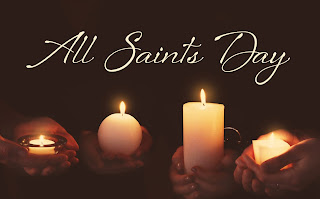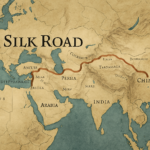
All Saints’ Day is a religious holiday observed by the Catholic Church, as well as some Protestant and Eastern Orthodox churches. Depending on the denomination, All Saints’ Day falls on November 1st or the first Sunday after Pentecost. All Saints’ Day is a day to remember the saints who have blessed our world and to remember loved ones who have died. It originated in Rome in the 600s and is now celebrated in countries all over the world. Some people observe the holiday by placing flowers on graves, lighting candles, and attending religious ceremonies.
Interesting facts about All Saints Day:
In Western Christianity, All Saints’ Day is observed on November 1st, while in Eastern Christianity, it is observed on the first Sunday after Pentecost.
All Hallows, Solemnity of All Saints, Hallowmas, and Feast of Saints are other names for All Saints’ Day.
White is the liturgical color for All Saints’ Day.
The first All Saints’ Day was observed in Rome in May 609, during the reign of Pope Boniface IV.
Some believe that All Saints’ Day arose from Greek Christian tradition in the fourth century, when a festival was held on the Sunday following Pentecost to honor saints and martyrs.
In 837, Pope Gregory IV declared All Saints’ Day a holiday.
Mexico observes All Saints’ Day with a week-long festival. Festivals, parades, and dances are all part of this celebration.
The football team known as the New Orleans Saints was named after the city’s large Catholic Church population.
Irish bread with fruit, soul cakes, and cabbage served with boiled potatoes are some All Saints’ Day feasts.
Symbols associated with All Saints’ Day include images of specific saints, the crown, God’s hand, and a sheaf of wheat.
On All Saints’ Day, people in some countries, such as the Philippines and France, go to their loved ones’ graves to repair or clean them.
Austria, Belgium, Bolivia, Chile, Croatia, France, Hungary, Italy, Liechtenstein, the Philippines, Poland, Portugal, Spain, Sweden, and parts of Switzerland and Germany observe All Saints’ Day as a public holiday.
All Saints’ Day is not a national holiday in Canada, the United States, the United Kingdom, or Australia, but it is observed by many Christians in these countries.
On All Saints’ Day, the play “Don Juan Tenorio” is traditionally performed in Mexico and Spain.
In Mexico, All Saints’ Day coincides with the start of the Day of the Dead, which honors infants and children who have died.
Similar to Halloween, Portuguese children go door to door receiving gifts of sweets, candies, nuts, and cakes on All Saints’ Day.
On All Saints’ Day, popular songs include “I Sing a Song of the Saints of God,” “Sine Nomine,” and “For All the Saints.”
Shakespeare called All Saints’ Day Hallowmas.
All Saints’ Day comes after All Souls’ Day. All Souls’ Day honors the departed who have not yet been purified and thus have not yet reached Heaven.









